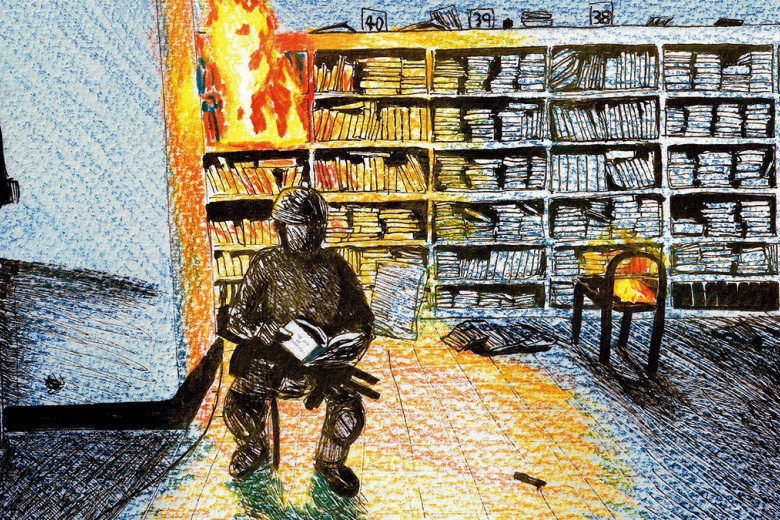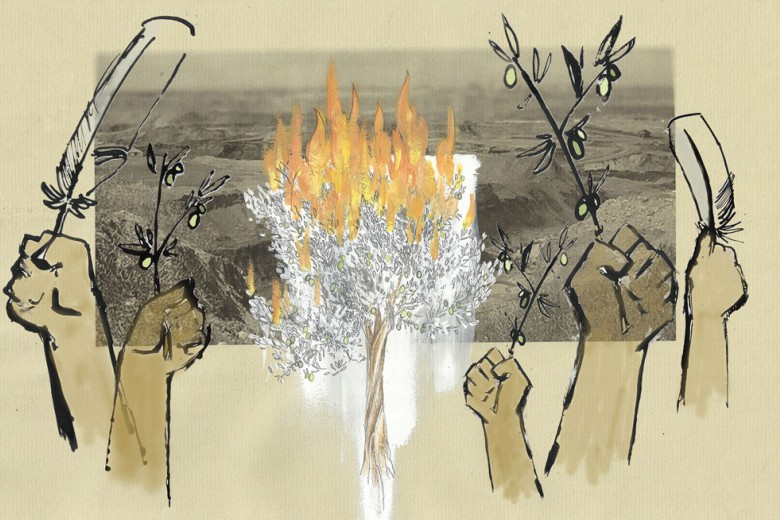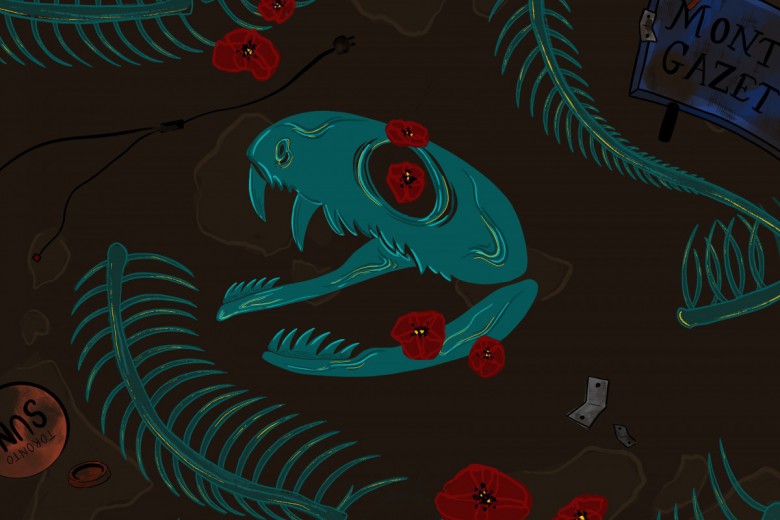“Why can’t Palestinians resist peacefully?”
A sheepish argument, one of many, and its proponents will gladly offer their sympathies and “solidarity” with the Palestinian people, so long as they are sheep for slaughter: perfect victims. This question, even when well-intentioned, points to a perspective devoid of historical understanding and divorced from reality.
Today during Israel’s genocidal war against Palestinians, nearly 40,000 Palestinians directly – with future predictions of up to 186,000 indirectly – have been martyred, predominantly in Gaza with a much lesser number in the West Bank and the rest of historic Palestine.
Under settler colonialism or occupation, the aggressor uses violence primarily as a weapon to impose their will and assert their domination. The violence of the Zionist project is continuous, extending over generations of Palestinians. The incarceration, starvation, psychological warfare, land-dispossession, bombardments, raids, and assassinations have been ongoing for more than 70 years.
The violence of colonized people is always a response and counter-violence to that of colonialism – it cannot be separated from the timeline of colonial subjugation and the unjust practices imposed on them by a foreign entity or project.
Since British rule at the end of the First World War and through the establishment of the state of Israel in 1948, we in Palestine have been subjected to invasion, colonialism, settler-colonialism, and occupation. None of these endeavours was “non-violent,” and so as a people in the Global South, Palestinians live in a context where the primary aggressor is the settler-colonial project and its occupying infrastructures.
One question stands out at this moment: What is resistance? As Frantz Fanon writes in The Wretched of the Earth, “National liberation, national renaissance, the restoration of nationhood to the people, commonwealth: whatever may be the headings used, or the new formulas introduced, decolonization is always a violent phenomenon.”
Algeria and Palestine
For Palestinians, Algeria serves as one of the nearest and dearest of examples of resistance against a colonial project. Having lost nearly 1.5 million people in their war for independence (1954-1962) against French colonialism, Algerians fought brutal French forces that invaded Algeria in 1830 and sought to establish it as a colony using tactics ranging from torture to mass killings and famine. France justified its colonization of Algeria (and other countries) in its mission civilisatrice [civilizing mission], so that any violent genocidal and inhumane action were accepted against what they framed as barbaric inhuman Algerians. Algeria won its independence from France in 1962 through many sacrifices and largely by a counter-insurgency against an invading force.
The violence of colonized people is always a response and counter-violence to that of colonialism – it cannot be separated from the timeline of colonial subjugation and the unjust practices imposed on them by a foreign entity or project. Whether or not it occurs as a response to an “immediate” prompt or provocation, it is anti-colonial and anti-imperialist in nature.
No peace through pacification
Of course, any Palestinian or Arab cannot wait for the day that peace prevails. But, “peace” is an aftermath and a state of existence, not a path to a resolution – certainly not when your adversary or enemy is hell-bent on inflicting violence. People under occupation should not be expected to achieve liberation by being “peaceful,” or rather, pacificists.
Foreign invaders, occupiers, or colonizers expect those they aim to colonize to be pacifists. This then begs the question: if such a people have existed, where are they buried now?
The real undercurrent of the argument of “peaceful resistance” is pacifism. In addition to Western mainstream propaganda and the non-profit industrial complex, the concept of “non-violence” or “pacifism” has become popular. In Palestine, this is seen through the signing of the Oslo Accords at the end of the first intifada and topped off by the installment of the Palestinian Authority, the comprador government propped up through Israeli-U.S. hegemony. This benefits the objectives of the Zionist project, and it goes without saying that any popular uprising from the Palestinian masses would affirm the illegitimacy of the Palestinian Authority. Any population that is incapable of defending itself from violence or countering it is subjecting itself to a demise. It allows the perpetual cycle of ethnic cleansing and incremental genocide to occur without any hope in sight.
Foreign invaders, occupiers, or colonizers expect those they aim to colonize to be pacifists. This then begs the question: if such a people have existed, where are they buried now?
The right to resist
Resistance, then, is the defiant act against an invading or an oppressive force that includes counter-violence, and in the history of Arab anti-colonial resistance, it is seen as a national duty for those who are capable. Resistance can be individual or en masse, ranging from civil disobedience, sumoud/steadfastness to strikes and counter-insurgency.
For Palestinians, Arabs, and all peoples in the neighbouring region to exist in a state of “peace,” the primary force that is exerting all forms of violence must be defeated.
If the argument is one based on right versus might, then Palestinians have every right to resist. As a bare minimum, it is even enshrined in international law – the right to resist. Despite the right to resistance, we witness opposition to the Palestinian right to self-determination, in the mainstream and even in some corners of the left. For this group, their support of Palestinian resistance is contingent on its secularism and its “non-violent” tactics. But whether a people under colonialism and occupation are worthy of defending their lives should not be contingent on whether they fall into the dominant ideological tendencies or governance styles of Europe and North America.
For Palestinians, Arabs, and all peoples in the neighbouring region to exist in a state of “peace,” the primary force that is exerting all forms of violence must be defeated. That force in this case is the Zionist colonial project, along with any imperialist backing that it gets.
The moment we’re in and the crystal clear genocidal intent that we see in the Zionist project propels us to understand that our solidarity and support for the Palestinian cause must be unconditional.
We must ask: Would the Zionist colonial project be willing to leave Palestine…peacefully?


_1200_675_90_s_c1_.jpg)
_780_520_s_c1.png)



